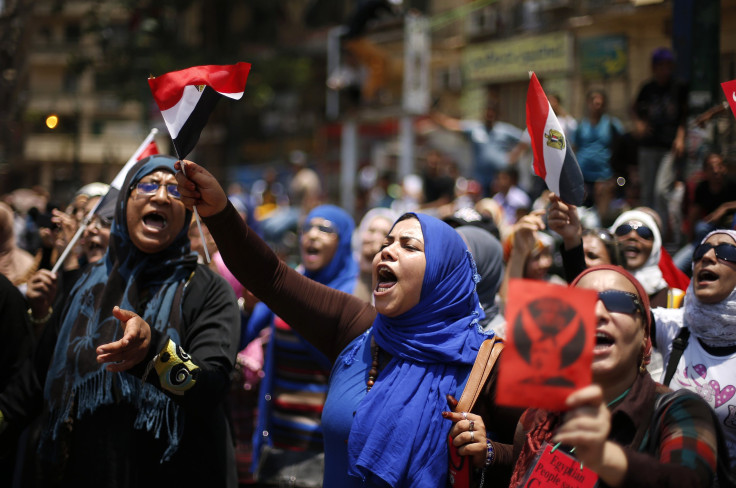Egypt Foreign Minister Latest To Quit Morsi Cabinet

As pressure mounted on Egyptian President Mohamed Morsi mounted, Foreign Minister Mohamed Kamel Amr has tendered his resignation, the state news agency MENA reported early Tuesday. At least five other Cabinet ministers have resigned since Sunday's mass protests.
Meanwhile, the hardline Islamist Nour party called for early presidential elections to avoid “civil war,” Al Ahram reported.
Trying to remain neutral, the Salafist Call and Nour Party has stayed out of rallies both for and against Morsi, but after two days of massive protests, they endorsed the opposition’s main demand (early presidential elections), and also called for a government of technocrats and a committee for constitutional amendments.
Earlier Monday, the armed forces handed Morsi a virtual ultimatum to share power, giving feuding politicians 48 hours to compromise or have the army impose its own road map for the country.
A dramatic military statement broadcast on state television declared the nation was in danger after millions of Egyptians took to the streets on Sunday to demand that Morsi quit and the headquarters of the ruling Muslim Brotherhood were ransacked.
Morsi said in a statement early Tuesday that he was not consulted in advance of the military’s ultimatum, the BBC reported.
The presidency "sees that some of the statements in it carry meanings that could cause confusion in the complex national environment,” it read.
The protesters' main demands are that Morsi announce early elections and step down, allowing a temporary government to take over.
"If the demands of the people are not realized within the defined period, it will be incumbent upon (the armed forces)... to announce a road map for the future,” the armed forces’ statement said.
© Copyright IBTimes 2024. All rights reserved.











